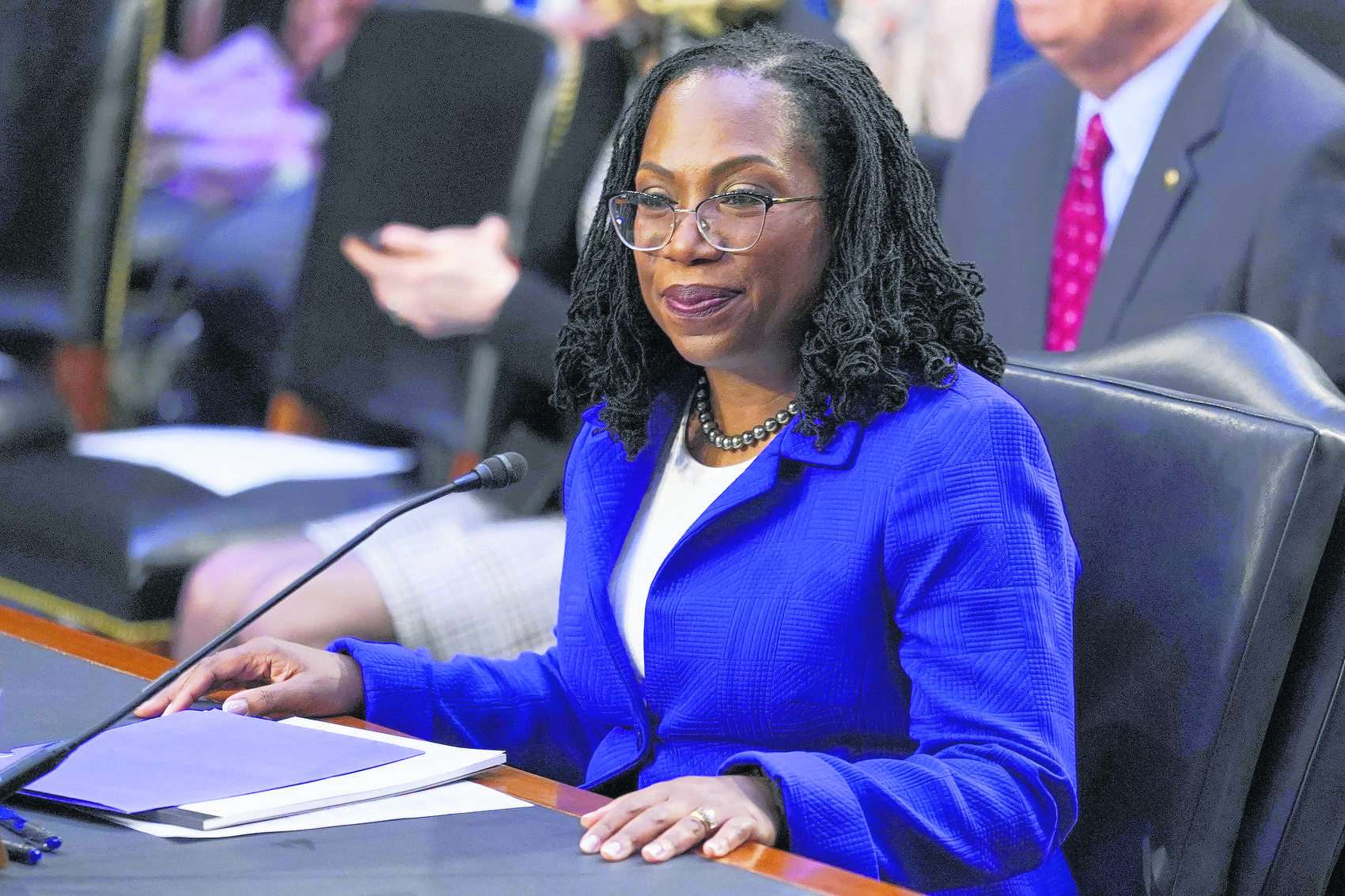
Carolyn Kaster AP
Supreme Court nominee Judge Ketanji Brown Jackson takes her seat before the start of her confirmation hearing before the Senate Judiciary Committee on Monday on Capitol Hill in Washington, D.C.
WASHINGTON Supreme Court nominee Ketanji Brown Jackson pledged on Monday to decide cases “without fear or favor” if the Senate confirms her historic nomination as the first Black woman on the high court.
Jackson, 51, addressed the Senate Judiciary Committee at the end of her first day of confirmation hearings, nearly four hours almost entirely consumed by opening statements from the panel’s 22 members.
Republicans promised pointed questions over the coming two days, with a special focus on her record on criminal matters. Democrats were full of praise for President Joe Biden’s Supreme Court nominee.
With her family sitting behind her, her husband in socks bearing George Washington’s likeness, Jackson stressed that she has been independent and transparent in her nine years as a judge, and that she is ever mindful of the importance of that role.
“I have dedicated my career to ensuring that the words engraved on the front of the Supreme Court building – equal justice under law – are a reality and not just an ideal,” she said.
Barring a significant misstep, Democrats who control the Senate by the slimmest of margins intend to wrap up her confirmation before Easter. She would be the third Black justice, after Thurgood Marshall and Clarence Thomas, as well as the first Black woman on the high court.
“It’s not easy being the first. Often, you have to be the best, in some ways the bravest,” Democratic Sen. Dick Durbin of Illinois, the committee chairman, said in support shortly after the proceedings began.
Democrats sought to preemptively rebut Republican criticism of her record on criminal matters as a judge and before that as a federal public defender and a member of the U.S. Sentencing Commission.
Jackson “is not anti-law enforcement,” and is not “soft on crime,” Sen. Pat Leahy, D-Vt., said, noting that members of Jackson’s family have worked in law enforcement and that she has support from some national law enforcement organizations. ”Judge Jackson is no judicial activist.”
The committee’s senior Republican, Sen. Chuck Grassley of Iowa, promised Republicans would “ask tough questions about Jackson’s judicial philosophy,” without turning the hearings into a ”spectacle.”
Sen. Lindsey Graham, R-S.C., noted that Democrats had opposed some past Republican judicial nominees who were Black or Hispanic, and he said that he and his GOP colleagues wouldn’t be deterred from asking probing questions by Jackson’s race.
He said of some criticism from the left: “Bottom line here is, It’s about ‘We’re all racist if we ask hard questions.’ That’s not going to fly with us.”
Graham was one of three Republicans to support Jackson’s confirmation as an appellate judge last year. But he has indicated over the past several weeks that he is unlikely to vote for her again.
Jackson’s testimony will give most Americans, as well as the Senate, their most extensive look yet at the Harvard-trained lawyer with a resume that includes two years as a federal public defender. That makes her the first nominee with significant criminal defense experience since Marshall.
Jackson appeared before the same committee last year, after Biden chose her to fill an opening on the federal appeals court in Washington, just down the hill from the Supreme Court.
The American Bar Association, which evaluates judicial nominees, has given Jackson its highest rating, “well qualified.”
Janette McCarthy Wallace, general counsel of the NAACP, said she was excited to see a Black woman on the verge of a high court seat.
“Representation matters,” Wallace said. “It’s critical to have diverse experience on the bench. It should reflect the rich cultural diversity of this country.”